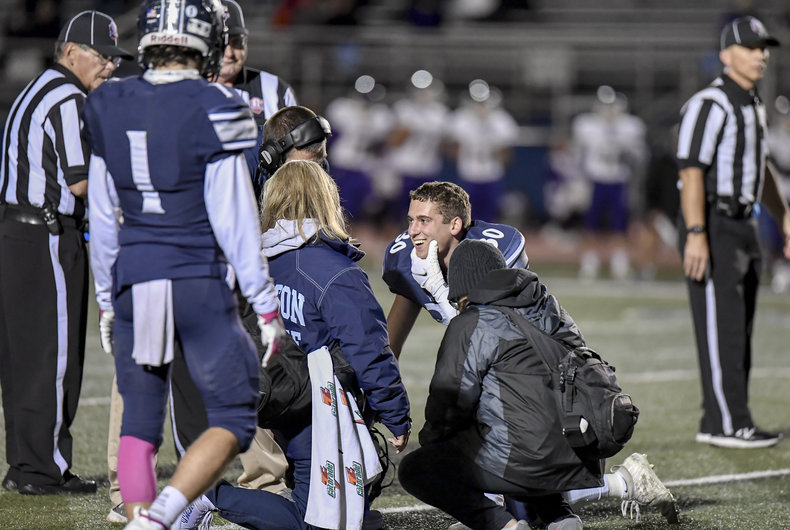
 |
A-Z | Popular | Blog | Communication Skills | Search » |
14 Examples of Positive Communication CoolnessCoolness is the self-confidence, resilience and detachment that allows an individual to avoid boorish behavior such as becoming too serious or emotional in conversation. For example, the ability to talk about politics with a little detachment such as the observation that it is all a little absurd anyway.OpennessA common reason to lose one's cool in conversation is to have your assumptions disregarded or challenged. Openness is a type of intelligence that allows you to switch contexts by temporarily parking assumptions and following another person's train of thought. This allows you to follow other lines of reasoning in order to question them in a reasonable way.AgreeablenessAgreeableness is the ability to see the positives and potential in others and their ideas. Adopting a friendly approach to people and their ideas completely changes the course of a conversation.Taking the High RoadOpenness and agreeableness are a form of bravery as they can leave you exposed to negative or aggressive communication. For example, if you greet a neighbor in a friendly way and they harshly respond, it is very difficult to retain your friendly demeanor. Taking the high road is the ability to handle this stress and remain positive such that your mood and approach aren't easily manipulated by others.RespectTreating others as you would like to be treated. For example, showing interest when someone is excited about something.All the Small ThingsAdhering to norms and paying attention to details. For example, greeting people and noticing the emotion in their response such as a family member who seems down about something.Thoughtful CommunicationListening with intent to understand others and thinking before you speak to try to avoid poor quality responses. The habit of really listening to others is surprisingly rare. Likewise, it is a common failure to blurt out responses without thought that are dumb or insulting.Thoughtful QuestionsThoughtful questions are uncommon. If you've ever been asked a thoughtful question, you'll know that they generate much goodwill. A reasonable source of thoughtful questions is true curiosity whereby you really listen to someone and try to develop authentic interest in what they are saying.Win-winViewing social processes as win-win as opposed to win-lose. For example, viewing a friendship as a relationship that builds up both sides as opposed to a situation where you take and don't give.HumorPeople quickly tire of seriousness and often prefer to dwell in the absurdities of life known as humor. Humor is an advanced skill as it requires timing and appropriateness that is easy to get wrong. Even if you don't attempt much humor yourself, it is helpful to remember that joy can be found in most conversation such that being overly seriousness can be a mistake.Saving FaceSaving face is the practice of helping others to avoid embarrassment. This is strongly expected in some cultures and can be applied in cultures that don't expect it. For example, a manager who delivers strong criticism one to one as opposed to in front of an entire team.MediocrityMediocrity is a pathetic state where an individual clings to a group for safety and security but minimizes their contributions to this group. It is common for the mediocre to use questionable strategies such as false praise that are essentially negative uses of positive communication.Group HarmonyIn some cases, groups prioritize group harmony over other goals such as a rational strategy or decision. In this case, positive communication may be used as an excuse to avoid creative tension. Challenging others is fundamentally important to doing the right thing.Cruel WitIt would be naive to think that positive communication is the only way to do well in social situations. For example, it is common for individuals with a cruel wit to be socially dominant in a range of situations.Communication SkillsThis is the complete list of articles we have written about communication skills.If you enjoyed this page, please consider bookmarking Simplicable.
Communication SkillsThe common types of communication skill.
HumorAn overview of humor with quotations as examples.Effective Communication
An overview of effective communication with examples.
Direct Communication
An overview of direct communication with examples.
Presentation Skills
An overview of basic and advanced presentation skills with examples.
Soft SkillsA list of soft skills for job descriptions and resumes.Business SkillsA list of common business skills.Skills vs Abilities
The difference between a skill and an ability.
Social Intelligence
A definition of social intelligence with examples.
Attention To Detail
The definition of attention to detail with examples.
Meeting ManagementAn overview of meeting management with examples.EmpathyThe definition of empathy with examples.Empathy vs Sympathy
The difference between empathy and sympathy explained.
Introspection
The definition of introspection with examples.
TrendingThe most popular articles on Simplicable in the past day.
New ArticlesRecent posts or updates on Simplicable.
© 2010-2023 Simplicable. All Rights Reserved. Reproduction of materials found on this site, in any form, without explicit permission is prohibited. View credits & copyrights or citation information for this page. |